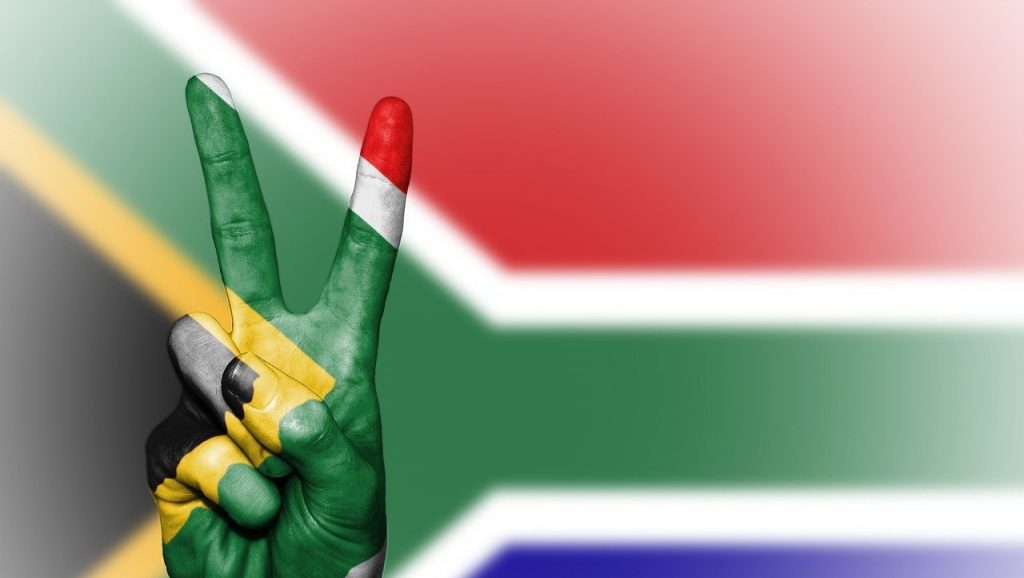We all have them. Those apps we open without thinking. Not because we need anything in particular, but because they feel… safe, in some…
Economic revival lies in buying local [Opinion]

As we celebrate Heritage Day today in South Africa, Karl Westvig, CEO and founder of Retail Capital shares his views that local SMEs hold the keys to unlocking South Africa’s prosperity and the importance of supporting local.
Therein lies a blueprint to add another tool into our economic recovery toolkit. Buy local.
When President Cyril Ramaphosa announced the country’s move to level one restrictions one could almost hear the cheers of small and medium enterprise (SME) owners who so desperately need the economy to return to some degree of normalcy.
Of course, “some degree of normalcy” or the “new normal” does not mean that our lives will go back to where they were a year ago, but it does mean that barring a rapid surge in Covid-19 infections all the pieces are in place to kickstart our economy. The surest route to economic recovery and prosperity in our new normal is to support local – we need to light the fire under our immense SME potential.
There is no hiding from the fact that businesses have taken a hammering, just like their counterparts around the world. The country’s recently released economic data put numbers onto what we already know – that year-on-year it has been nothing short of a rout.
South Africa’s heightened inequality and socioeconomic challenges mean that many millions of poor people have truly borne the brunt of the pandemic. Families who have been victims of company closures or retrenchments have endured indescribable hardships. However, despite where we find ourselves, we stand at the cusp of great opportunity.
In order to understand the potential we can unlock, one needs to take a step back and consider a few facts. The first is that SMEs are a huge source of employment for South Africans because by all estimates they make up well over 95% of businesses in the country. The health of SMEs is therefore vital to South Africa’s GDP and integral to any economic turnaround.
And so, when the pandemic hit, the first to feel the pain were small businesses, with the requisite economic implications. However, if we take a look at the SMEs that either survived or thrived against the odds we find a recurring pattern.
They evolved rapidly. Where a door shut, they immediately opened another. Businesses that were built on hot food suddenly became proficient at cold meals, while importers of Chinese goods sourced local goods – all the way from lights, to clothes, to gym and exercise equipment.
Therein lies a blueprint to add another tool into our economic recovery toolkit. Buy local.
Buy local
In our network of businesses, we noticed that those which were able to pivot and support local – both upstream and downstream, suddenly found themselves able to service their customers, but also reignite the prospects of South African suppliers. With a newfound demand, many of these producers were able to rise to the challenge.
This is all good and well but what happens when the borders reopen and the market is flooded with cheaper imports? Opening the borders completely is an essential component of a free and open economy, but it need not be the death knell of the local industry – and we are not scratching the surface of protectionism either.
By supporting local wherever possible, we recalibrate our lense to see the bigger picture. Our prospects are all intricately linked – if your side of the ship starts taking on water, chances are it is only a matter of time before mine does too. If the ship takes on too much water, we all sink together.
As businesses scale, and move from startups into fully-fledged businesses, they are able to service the needs of their customer base more efficiently.
Digitisation
One of the forced outcomes of the pandemic has been the need for everyone to embrace digital transformation in some form or another.
Automation of business processes such as HR or accounting, for instance, allows SME business owners to move away from being jacks of all trades and focus on the core tasks of running and growing their businesses.
Digital capabilities also mean that businesses can find one another, compete with one another, and very importantly, find and listen to their customers.
But how do we get there? The single biggest obstacle to SMEs scaling to sustainable levels is lack of access to funding, and so as funders, we understand the vital role we play at the coalface of the SME engine room.
The most appealing side effect, then, of an economic recovery built on the foundation of a buy-local mindset, is resilience. Resilience in the face of economic dips, resilience in the face of another global catastrophe, and resilience in the face of very stiff competition from international players and their exports to our shores.
As we celebrate heritage day, let’s take a moment to reflect on how far we have come as a country. Six months ago we had no idea how badly this pandemic would hurt us, or what the aftermath would be. Like all hardships, it came at a great price to families who lost loved ones and businesses, but it also brought communities together.
What a beautiful story it would be if we, as South Africans, took this legacy of pulling together into 2021 and beyond by thinking creatively and supporting the driver of our country’s potential prosperity: South African SMEs.
This article was written by Karl Westvig, CEO and founder of Retail Capital, a company focused on providing funding and assistance to local SMEs.
Featured image: David_Peterson via Pixabay


